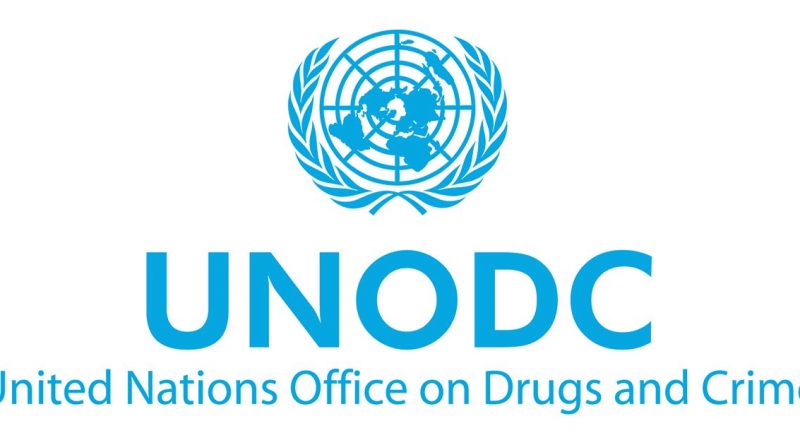UNODC Launches Nigeria’s Training Module on Investigative Interviewing, the Right to Remain Silent and the Prohibition of Torture
Oru Leonard
On Friday 18th March the United Nations Office on Drugs and Crime, working with the Nigerian Institute of Advanced Legal Studies, and supported by the European Union, presented its new Nigeria Training Module on Investigative Interviewing, the Right to Remain Silent and the Prohibition of Torture at a launch event held in Abuja’s Transcorp Hotel attended by senior figures from Nigeria’s law enforcement, security, and judicial communities.
This training module was developed to place special emphasis on the importance of ensuring effective and human rights compliant interviewing within the broader framework of criminal investigations. UNODC believes that the module is particularly relevant given the vital role that successful interviewing strategies can play in contributing to the outcome of criminal proceedings, and consequently to the effectiveness of the Nigerian criminal justice system at large.
The module is designed to serve as a practical tool for the training of practitioners working in the criminal justice sector in Nigeria, including public prosecutors, judges, defence lawyers, investigators, legal advisers and officials of national law enforcement and security agencies. It provides practical guidance on human rights-compliant best practices for conducting investigative interviews that respect the indivisible rights of suspects in line with the Méndez Principles on Effective Interviewing for Investigations and Information Gathering.
The Mendez Principles were developed in collaboration with UNODC by a consortium consisting of the American University Washington College of Law, the Association for the Prevention of Torture and the Norwegian Centre for Human Rights. The principles are named after the former UN Special Rapporteur on Torture Juan Méndez, who was himself a survivor of torture, and were presented to the international community at the 14th UN Congress on Crime Prevention and Criminal Justice held in Kyoto, Japan, in March 2021.
Explored in depth in this new Nigeria Training Module, these Principles are grounded in the most up-to-date research, scientific method, legal analysis, and police ethics, and offer a concrete alternative to interrogation methods that rely on pressure and coercion to extract confessions. The first UNODC-sponsored training on the principles will take place in Nigeria at the end of this month.
The Nigeria Training Module on Investigative Interviewing, the Right to Remain Silent and the Prohibition of Torture focuses on the Nigerian context and the Nigerian legal framework while referring to applicable regional and international law, and good practices. It takes note of the most recent legislation relevant to the criminal justice system in Nigeria, including the Nigerian Correctional Service Act, 2019 and other legal and policy developments. Building on the 2019 UNODC Nigeria Training Module on Gender Dimensions of Criminal Justice Responses to Terrorism, it also emphasizes the gender dimensions of investigative interviewing, including key safeguards for the prevention of torture.
Commenting on the launch of the manual, Professor M. T. Ladan PhD, Director General of the Nigerian Institute of Advanced Legal Studies, told reporters: “It is essential that investigative interviewing is conducted in compliance with human rights standards and that investigators adopt non-coercive and practical measures to obtain reliable and accurate information from suspects, witnesses and victims. The training module was developed with careful consideration of the legal and policy context in Nigeria, and aims to respond to Nigeria’s specific needs, while incorporating international and regional standards and good practices in investigative interviewing.”
Mr. Oliver Stolpe, Country Representative of UNODC, added further context while thanking Dr Ladan for his central involvement in the project: “This module is one of a series of practical tools developed by the Office in conjunction with its Nigerian partners under the skillful leadership of the Nigerian Institute of Advanced Legal Studies, and builds on previous UNODC publications tailored for Nigeria including the Nigeria Handbook on Counter-Terrorism Investigations and User’s Guide to the Terrorism (Prevention) Act, 2011 (TPA) as amended by the Terrorism (Prevention) (Amendment) Act, 2013 (TPAA). We trust that it will serve as a handy work of reference, as an aid for self-study, and also as useful teaching guide in educational establishments for years to come.”
Ms. Samuela Isopi, Ambassador of the European Union Delegation to Nigeria and Nigeria the Economic Community of West African States (ECOWAS), also welcomed the publication of the manual, commenting: “The criminal justice system in Nigeria has made significant progress in bringing suspected members of terrorist organizations to justice, but there is always room for improvement in this complex and rapidly evolving field. It is our earnest hope that this module will assist Nigerian criminal justice institutions in ensuring the use of effective interviewing techniques while respecting human rights, and thus help to strengthen the effectiveness of criminal justice responses to terrorism and uphold the rule of law.”




